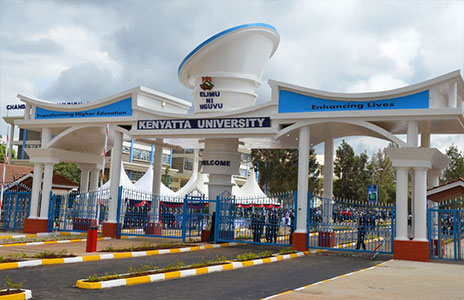
The BSc in Nursing degree program is designed to give nursing students an opportunity to develop in depth knowledge, skills, and attitudes necessary to provide holistic nursing care. Nursing is a profession within the health care sector focused on the care of individuals, families, and communities so they may attain, maintain, or recover optimal health and quality of life.
The program will enable the graduates to use the existing theories and research findings in the provision and promotion of health services, illness prevention, and management of patients in a variety of settings. It will further enable the graduates to develop and integrate critical thinking and problem-solving skills into the practice of nursing.
Degree of Bachelor of Science in Nursing transforms a student into a liberally educated and self-directing nurse capable of providing leadership in Nursing practice, Nursing Administration, Nursing Education, Research, and Publication in their chosen area of specialization. Nurses develop a plan of care, working collaboratively with physicians, therapists, the patient, the patient's family, and other team members that focuses on treating illness to improve quality of life.
The BSc in Nursing graduates are able to function effectively in a variety of settings, where the sick are cared for and where the health of individuals, families, and communities is maintained and promoted.
Nurses comprise the largest component of most healthcare environments yet there is evidence of international shortages of qualified nurses. Many nurses provide care within the ordering scope of physicians, and this traditional role has shaped the public image of nurses as care providers. But in reality, Nurses work in a variety of settings and specialties. They may choose to practice in hospitals, nursing homes, medical offices, ambulatory care, occupational health, and community health centers, schools, clinics, camps, and NGOs.
The graduates in the various nursing programs will be able to utilize skills based on knowledge derived from theory, practice, and evidence-based research and in relation to emerging health needs of a changing society. They will be capable of functioning effectively in a variety of teaching institutions and health care settings, to offer promotive, preventive, curative, and rehabilitative services to the clients/ patients. The graduates will be able to function independently and interdependently within the multidisciplinary health care team.
Nurses perform many professional tasks which may differ based on where they work or what area they specialize in. Nursing responsibilities in the work environment include tasks such as:
- performing physical exams
- obtaining medical health histories
- providing patients with health promotion, counseling, and education
- administering medications, wound care, and other health interventions
- coordinating patient care collectively with other members of the healthcare team
- supervising staff such as LPN?s and nursing assistants
- taking part in critical decision making
- research responsibilities
Students who pursue a Bachelor?s Degree in Nursing have many career options which include:
- Maternity, Neonatal, and Pediatric Nursing
- Medical and Surgical Nursing
- Psychiatric Nursing
- Community or Public Health
- Missionary, Humanitarian and Disaster Relief Work
- Teaching and Health Education
- Nursing Research
- Health Policy
- Leadership
Entry Requirements
The minimum entry requirements for the Bachelor of Science in Nursing degree program are:
- Direct entry: KCSE mean grade of C+ (plus) with C+ in each of the following cluster subjects: English, Biology/Biological Sciences, Chemistry Mathematics or Physics.
- RN to BScN Upgrading
- KCSE aggregate C plain plus Diploma in Nursing
- KCE/EACE Division 2 plus Diploma in Nursing
- KACE 1Principal and 2 Subsidiaries plus Diploma in Nursing
- At least 2 years working experience after attainment of the Diploma in Nursing
Objectives of Bachelor of Science in Nursing
The primary purpose of a Bachelor of Science in Nursing (BSN) degree is to prepare students for a career as a professional health care practitioner who provides compassionate care, which is based on scientific evidence in hospitals, clinics, long-term care facilities, schools, home health care services, and community health centers as registered nurses.
Upon completing the Bachelor of Science in Nursing (BSN) program, graduates will be able to:
- Explain the multiple roles of the professional nurse as a leader.
- Apply to nursing practice an ethical framework that incorporates moral concepts, professional ethics, law, and respect diverse values and beliefs.
- Design competent, patient-centered professional nursing care for individuals, families, and populations across the health continuum in a variety of community-based settings and institutions, emphasizing patient safety and quality.
- Appraise listening, oral, nonverbal, written, and visual communication skills for efficacy.
- Demonstrate utilization, integration, and application of knowledge generated through research as evidence in practice.
- Perform a comprehensive assessment of individuals, families, and aggregates utilizing current technologies when needed.
- Practice safe evidence-based nursing care.
- Promote health through education, risk reduction, and disease prevention.
- Appreciate human diversity and the implications of a global health care environment.
- Evaluate therapeutic nursing care for individuals, families, and aggregate groups in a dynamic, multi-faceted health care system according to accepted standards of practice.
- Integrate knowledge from the physical and behavioral sciences, and informatics into professional nursing practice.
- Use critical thinking, and evidence-based practice and research findings in professional nursing practice.
- Form interdisciplinary collaborative relationships to improve professional nursing practice and the quality of healthcare for all.
- Demonstrate ethical and professional nursing roles, values, social justice and human dignity.
- Exhibit effective communication skills for professional nursing practice.
- Demonstrate commitment to a lifelong learning plan for professional development.
- Demonstrate the art and science of professional caring incorporating the professional values of the discipline of nursing.
- Model critical thinking within the practice of professional nursing.
What you will study
The units to be covered in the Bachelor of Science degree program include:
- Psychology
- Human Anatomy 1
- Medical Microbiology
- Parasitology
- Computer Applications
- Communication and Counseling
- Human Physiology II
- Basic Life Support and Emergency Response
- Primary Health care and Community Health Care
- Medical Microbiology
- Community Health Services I
- Human Anatomy II
- Embryology
- Medical-Surgical I
- Community Health I
- Immunology
- Haematology
- Human Pathology
- Midwifery I (Introduction to Midwifery and Pregnancy)
- Medical-Surgical Nursing II
- Sociology and Anthropology
- Community Health Nursing II
- Medical-surgical Nursing Practicum
- Midwifery II (Labour, Delivery, and Emergencies)
- Biostatistics
- Gynecological Nursing
- Medical-Surgical Nursing III
- Gender Health
- ENT, Dental health and Ophthalmology
- Midwifery I and II practicum
- Peri-operative and emergency nursing
- Midwifery III
- Epidemiology, Demography and Community Diagnosis
- Mental Health and Psychiatric Nursing
- Educational Psychology
- Nephrology and critical care nursing
- Critical Care nursing practicum(ICU Renal, Operating theatre, Accidents, and emergency) practicum
- Paediatric Nursing
- Communicable, Vector-Borne and Tropical Diseases
- Education and Instruction in Nursing
- Critical Thinking and Scientific Writing
- Research Methodology (Theory)
- Proposal Development
- Environmental and Occupational Health
- Teaching Practicum
- Health Systems Management
- Oncology and Forensic Nursing
- Palliative care
- Research Methods: Project
- Nursing administration practicum
Related articles
-

A Guide to Civil Engineering Degree and Diploma Programs in Kenya
08-Nov-2025 -

Electrical Engineering in Kenya: A 2025 Guide for KCSE Graduates
08-Nov-2025 -

Mechanical Engineering in Kenya: A 2025 Guide for KCSE Graduates
08-Nov-2025 -

Engineering Courses in Kenya: A Guide for 2025 KCSE Graduates
08-Nov-2025 -

Education Pathways in Kenya — From Basic Education to Tertiary | College Guide
06-Nov-2025 -

The Bird and the Mirror: A Reflection on Identity, Perception, and Illusion
07-Feb-2025
Colleges offering Bachelor of Science in Nursing

Starehe
University of Nairobi

Ruiru
Kenyatta University

Belgut
University of Kabianga

Chesumei
University of Eastern Africa Baraton

Rongai
Kabarak University

Chuka Igambangombe
Chuka University

Kisumu Central
Uzima University

Kajiado North
Umma University

Nyeri Town
Dedan Kimathi University of Technology

Kitui West
South Eastern Kenya University

Kilifi South
